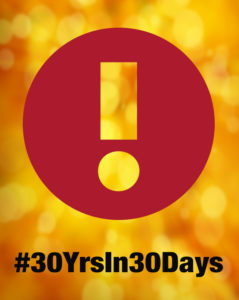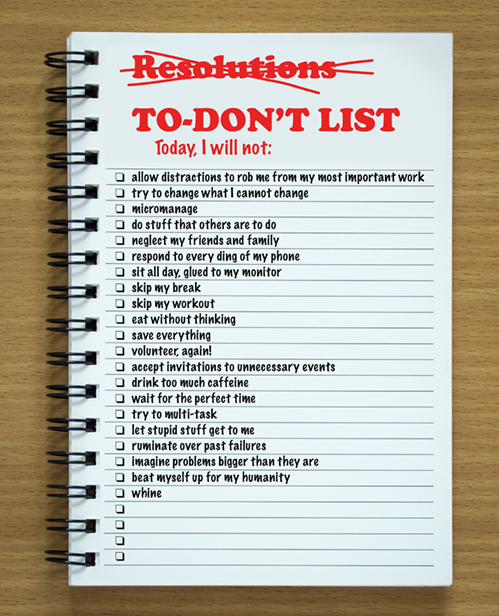
A Collection of Axioms Gleaned Over 30 Years in Business
Day 1: Small is the new Big. Small Business can run circles around Big Biz. It is flexible & resilient. Its voice is unmistakably human. It is closer to the customer, and can provide the currency of attention. It starts faster, stops faster, turns faster. There is always room for one more in the sea of free enterprise. You never know what you can do, until your small business challenges you to do it. It grows people into the best they can be. #SmallBizRocks
Day 2: Biggest problem in Small Business is that you don’t know what you don’t know. Ignorance is bliss, but only for a very short while. Fortunately, Small Business is also self-calibrating, if you are willing to learn. Better to ask a dumb question than hang on to your ego.
Day 3: We started our business 30 years ago with virtually nothing. Let us tell you the blessings of bootstrapping: 1) when you start with nothing you have nothing to lose, 2) the sky is the limit–you have everything to gain, 3) rock bottom is a pretty firm foundation on which to start building, 4) you are highly motivated to make it work, so you begin business with good habits.
Day 4: Your Small Business is not about you. It’s not about how or what you want to sell. It’s not about your programs, or your information, or your unique skills. It’s all about what the customer wants, and how and why they want to buy it. It’s not about solving your cash flow problems. It’s about helping the customer solve their problems.
Day 5: What is your company’s raison d’etre? Passion is good. Purpose is better. In face, it is everything. Small Business requires massive amounts of energy. Without a Purpose bigger than ourselves, we will eventually run out of gas, and slide into a crisis of identity, context, and meaning.
Day 6: Customers are not data points. They are not transactions. Your customer is not a means to and end. They are the end.
Day 7: Small business will bring out the best in you, if you let it. It will ask more of you than what you think you’ve got, challenging you on every level. But you have no idea what you are capable of. Your biz will show you what you really can do.
Day 8: Your small business will also bring out the worst in you, if you let it. It will expose every flaw you’ve ever had. Your Biz will also give you the chance to see these flaws, make changes, and become a better person. Only the humble will survive. “Humility, after the first shock, is a cheerful virtue.” C.S. Lewis
Day 9: KEY: Keep. Educating. Yourself. Keep reaching. Keep practicing. Keep honing your skills. You will never be done learning. The minute you think you are done learning, you are in decline.
Day 10: The very best way to keep customers is so so simple. Show up, do what you say you will do, when you say you will do it. Just do this, and you will always have customers.
Day 11: If you are not having fun in your business, you’re doing something wrong. Groucho Marx
Day 12: You have to make money to stay in business. But if making money is your 1st goal, your customer will eventually figure out your goal is to get the money from their pocket to yours. Profit will remain elusive. Your 1st goal: Improve your product.
Day 13: Entrepreneurs will always have more things to do than will fit in the schedule. Your best use of time is to use your time to buy more time. Whatever will save you time tomorrow and the next day? Move that item up towards the top of your list.
Day 14: Testing and measuring your marketing efforts is critical to determine what is working and what isn’t working. You don’t need to measure every recommended KPI. You don’t have to measure everything everywhere. You can waste a lot of time doing that. Every business is different. Learn what metrics are critical to your organization. Start with those things. Add other measurements as you have time and staff to use them. In a nutshell, you need only measure the things you can affect.
Day 15: If you have to be certain to make a decision, you will never do anything. You will never have absolute certainty. Most of small business is improvisation. Give it your best shot and jump.
Day 16: Your business is the product. You have a brand. It is by default or on purpose. Everything you do is Brand. Everything in your business communicates, from the front door to the back. You are always communicating. “One cannot NOT communicate.” Watzlawick
Day 17: Surround yourself with people who know things you don’t. If you are the smartest person in the room, you are in the wrong room.
Day 18: Bad stuff can be the best stuff. Opportunity often comes wrapped in a strange disguise.
Day 19: It is important for an entrepreneur to know and understand the difference between marketing & advertising. Marketing is a lot like fishing: Know what kind of fish you are after. Know why you want that fish. Know where these fish are. Know when they are there. Know what they like. Know what kind of boat & pole are needed. Advertising is only the bait. Advertising is actually very easy if marketing has done its job.
Day 20: Always seek improvement. Make your product so good that you blow your own mind. If you are not blown away by your product, how can you expect anyone else to be?
Day 21: Don’t forget the why. Don’t let systems dissolve into mindless routine. It is at that point, you’ll know all the answers & forget the question. You’ll miss the forest for the trees. You’ll be missing the most important ingredient in any Small Business: Purpose.
Day 22: Practice THANKS GIVING. You did not get where you are on your own. Gratitude puts a spring in your step, hope in your heart, creativity in your soul, ideas in your mind, opportunity in your path, and a smile on your face.
Day 23: Competition is not evil. It means there is a robust market for your product. That’s a really good thing. Very few problems in Small Business are due to robust competition. Competition makes you and your product better.
Day 24: Imperfection is beautiful. It means the thing was made by a person. People are fascinating. Machines are boring. Perfection can be sterile, and boring. And Perfectionism can run you out of business.
Day 25: If the same problem seems to keep happening over and over no matter what you do, (and oh eeh gads I hate to tell you this): the problem is most likely you.
Day 26: The minute you hire one person, you are a leader, whether you have ever thought of yourself as a leader or not. Take the time to learn how to be the best leader you can be, because It’s much harder than it looks. Many entrepreneurs look forward to doing things ‘their way’ instead of the boss’s way. Yes, you get to call all the shots when you own the place. But, the flip side of that privilege is that you are also responsible for how everything turns out. Learning how to lead is one of your most important jobs ever as an entrepreneur. Study to make yourself worth following.
Day 27: Has anyone ever heard your idea and said, “You’ve got to be kidding me?”, or “You can’t do that”? STOP! Don’t throw that idea away!!!! Some of the best ideas on the planet began with those same exact words. The journey from impossible to possible begins in the imagination.
Day 28: Do you follow your own advice? Knowing and doing are two different things. Knowing and not doing is the same as not knowing. Maybe you don’t need another business coach. Maybe you just need to do what you know you should do.
Day 29: Small Business is all about relationships. Employee relationships must come first, and after that, they help you to make your customers happy. If you aren’t a people person, and you don’t know how to make or maintain or sustain relationships, it will be impossible to grow your business.
Day 30: Last Day of #30YrsIn30Days!!! It’s Day 30 of 30! Your heart health is essential for your Small Business health. We’re not talking primarily about physical heart health, though that is very important too. We are talking about what you believe about yourself and what you believe about your worth and abilities. Entrepreneurs need to guard our self talk. All. The. Time. The world will beat us down. You are the most influential person in your life. What do you tell yourself? Are you a friend to yourself? Or a foe? It is super important to calibrate your heart with truth, because what you are comes from what you believe about yourself, and what you believe about yourself comes out in everything you do. You will achieve only what you believe you can achieve. What steps can you take that would help you to feel more confident? Take care of that first. You have something to share with the world, and without it? The world will be missing out. You are worthy of success.


















